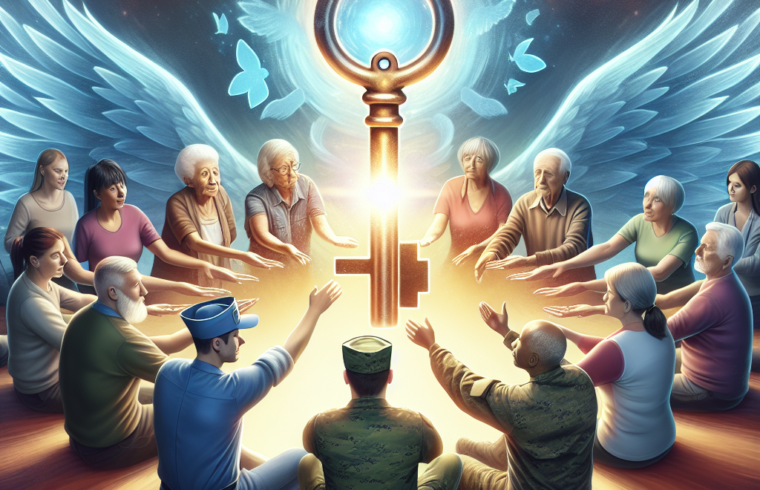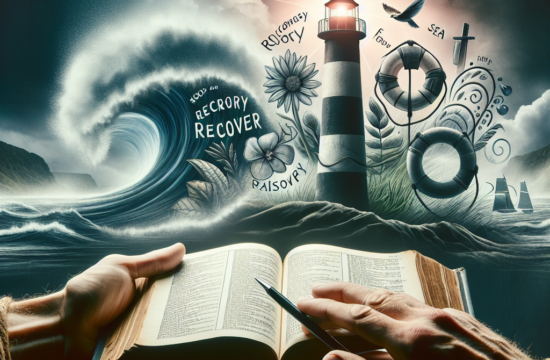Understanding Mental Health Challenges
Common Issues Faced by Veterans
As a veteran myself, I’ve seen firsthand the unique mental health challenges that can arise after service. Many veterans deal with issues like PTSD, anxiety, and depression. It’s important to acknowledge these challenges openly, as ignoring them can prolong the suffering.
==> Thank you for reading this post! Click Here If you are looking for support and Victory over PTSD.
Having your identity tied to military service can make it tough to adjust to civilian life. It’s not just transitioning; it’s an entirely new way of being. I remember feeling lost when I first came back, struggling with emotions I didn’t know how to name.
Understanding that these issues are common among veterans helps normalize the conversation. We need to talk about it, whether it’s with fellow veterans, friends, or even a therapist. It’s okay not to be okay, and reaching out is the first step in healing.
Identifying Personal Triggers
One thing that helped me immensely was figuring out what triggered my emotional responses. You know, the sights, sounds, or even just conversations that could bring back memories I’d rather forget. Identifying these triggers doesn’t erase the pain, but it helps in managing reactions.
For example, for some veterans, fireworks can trigger memories of combat. Acknowledging these triggers can enable us to prepare for or avoid situations that may lead to emotional distress, and that was a game changer for me.
Keep a journal if you can; write down what makes you feel certain emotions. Over time, you might start noticing patterns that can guide you in understanding how to cope better.
Seeking Professional Help
There’s this stigma about asking for help, but let me tell you; finding a good therapist was a lifesaver for me. Talking to someone who understands the military background was crucial. They got it in a way that my family and friends couldn’t.
There are VA services and organizations specifically geared toward veterans looking for mental health support. These resources are there so that you don’t have to go through this alone. I often found that sharing my experiences with someone trained to listen made a huge difference.
Do your homework and find a therapist that specializes in trauma and understands veteran issues; it can transform your journey to healing.
Building a Supportive Community
The Importance of Connection
One key to mental wellness for veterans is having a solid support system. I’m talking about connections with fellow veterans who truly understand what you’ve been through. It’s like this unspoken bond that makes it easier to share and relate without judgment.
Regular meet-ups can help foster these connections – whether it’s at a local coffee shop or a veteran’s organization. I’ve enjoyed potluck dinners with fellow veterans where we could laugh, share stories, and lean on each other.
Don’t underestimate the power of a good laugh; it can be therapeutic! Remember, having people who understand can dramatically lighten your emotional load.
Participating in Peer Support Groups
Joining a peer support group has been one of the most fulfilling experiences in my healing process. It’s a safe place to share experiences and strategies for coping with our specific challenges. Hearing others talk about their struggles is somehow comforting, letting you know you’re not alone in this journey.
Many communities offer informal support groups, and these can often be found through local veteran organizations or online forums. Don’t be scared to dive in – making that first step can often lead to lasting friendships.
Sharing experiences can lighten your load, and it’s essential to connect with those who can genuinely resonate with your journey.
Fostering Relationships Outside the Military
It’s also important to build friendships outside the veteran community. Family, friends, and even new acquaintances can play a pivotal role in your healing journey. Sometimes, fresh perspectives can provide a much-needed break from the weight we carry from service.
Engaging in community activities and hobbies can lead to new friendships and connections. I took up a new sport and discovered bonds I never thought I’d make. Some of the connections I’ve formed outside the military circle have been surprisingly fruitful and calming.
Remember, it’s all about balance. Building diverse relationships enriches your support network and can provide varied approaches to dealing with challenges.
Developing Healthy Coping Mechanisms
Exploring Mindfulness and Meditation
Mindfulness practices helped me stay grounded when the anxiety kicked in. Engaging in mindfulness or meditation can help calm those racing thoughts and keep you anchored to the present. I started with just a few minutes a day, following along with guided videos.
Those quiet moments can feel like an escape. As veterans, we’re accustomed to hard training, and applying that discipline to meditation can yield amazing results. I found my breath was a powerful tool, a simple yet effective way to reclaim my peace.
Never underestimate the power of stillness; carving out time for yourself can be transformative, nurtures the spirit, and helps navigate the labyrinth of emotions.
Get Support and Help with Recovery! Visit us for more Information and Support
Nurturing a Healthy Lifestyle
It might sound cliché, but adopting a healthier lifestyle forms the backbone of mental wellness. Eating well and getting regular exercise can have a significant impact on mood and resilience. I started prioritizing fitness after realizing how much better it made me feel.
Engage in activities that make you sweat, whether it’s lifting weights, biking, or a brisk walk outside. Combining physical fitness with mental health strategies creates a robust arsenal for tackling life’s hurdles.
Furthermore, limit alcohol and substance use. They might feel comforting short-term, but they can often complicate our problems instead of easing them. Find what works best for you in terms of nourishment and movement.
Expressing Yourself Creatively
Lastly, expressing yourself through creativity has been immensely therapeutic. Whether it’s painting, writing, or music, finding a way to convey your emotions can be liberating. I dabbled in writing poetry after service, a surprising outlet that helped shed some of my burdens.
Art can be an excellent release, giving shape and form to feelings that often feel overwhelming. There’s no right or wrong way to express yourself; it’s all about finding a way that resonates with you.
Plus, creative activities can be great conversation starters, helping you connect with others while also serving as an outlet for your feelings.
Maintaining Long-Term Wellness
Creating a Routine
Developing a routine can help keep you grounded amidst the unpredictability of mental wellness. I learned that having a daily structure gave me something to hold onto, making my days feel more purposeful. It doesn’t have to be anything rigid – find a rhythm that works for you.
Your routine could include simple things like a morning coffee ritual, a mindful walk, or scheduled self-care activities. Whatever brings you joy should have a spot in your day. It’s these little habits that can cultivate stability in your life.
Remember, it’s about creating a positive environment for yourself, one where self-care isn’t just an afterthought but a priority to maintain your mental fitness.
Setting Achievable Goals
Setting small, achievable goals can provide motivation and a sense of accomplishment. Each step forward can create a positive momentum that’s vital for mental health. I started by setting simple daily goals that were totally manageable.
Celebrate those little victories! Whether it’s cooking a meal, completing a workout, or reaching out to a friend, acknowledging these wins builds confidence in our ability to manage our wellness.
This practice is all about progress, not perfection. Celebrate where you’re at and allow yourself room to develop.
Regular Check-ins with Yourself
Finally, don’t forget to check-in with yourself. Regularly tuning in to your emotional state helps you recognize when you need a break or when to reach out for support. I made it a habit to pause and assess, asking myself how I was feeling and what I needed.
Being kind and patient with yourself during this process is crucial. Growth takes time, and it’s okay to have off days. Understand what you need, whether it’s solitude, a chat with a friend, or engaging in a hobby.
By consistently checking in, we can better navigate the ups and downs of healing, ensuring we create a sustainable path toward long-term wellness.
FAQs
What are the common mental health challenges veterans face?
Veterans often deal with PTSD, anxiety, and depression, stemming from their experiences in combat and transitions into civilian life.
How can I identify my personal triggers?
Keeping a journal and reflecting on your emotional responses can help identify patterns and situations that trigger negative feelings.
Is it really important to seek professional help?
Absolutely! Finding a skilled therapist can significantly impact your healing journey by providing guidance and understanding tailored to your experiences.
How can I build a supportive community?
Connect with fellow veterans through local meet-ups, online forums, or support groups. Sharing experiences fosters strong bonds and support.
What are some healthy coping mechanisms I can explore?
Mindfulness, exercise, creative expression, and a balanced diet are all beneficial practices that nurture mental wellness.












